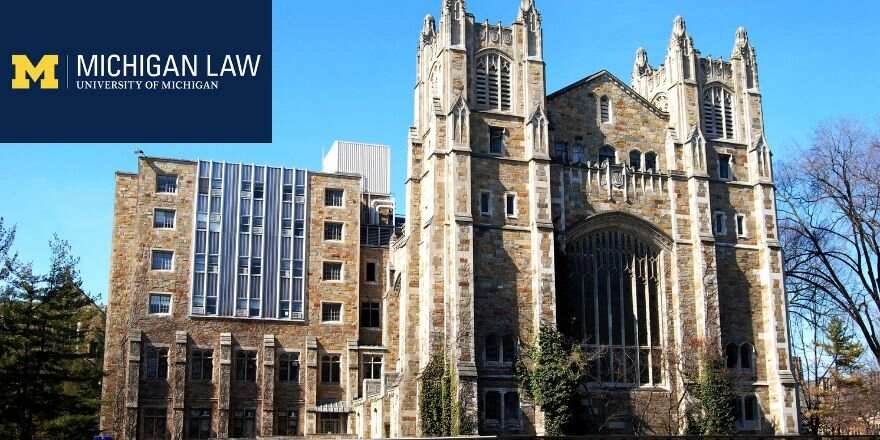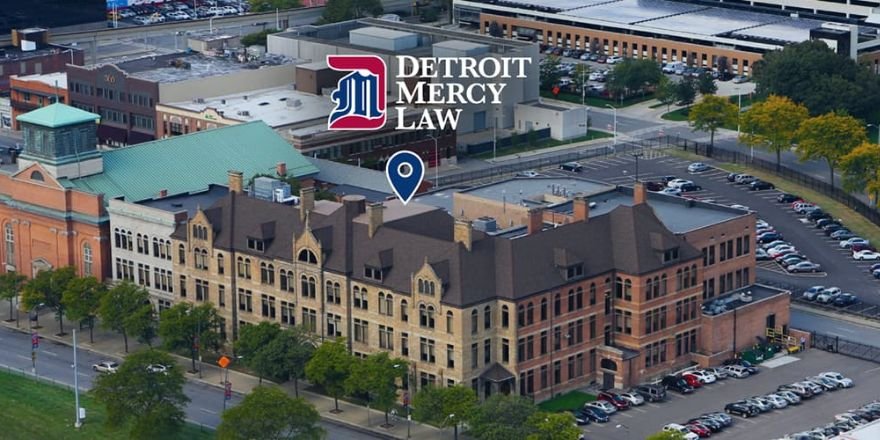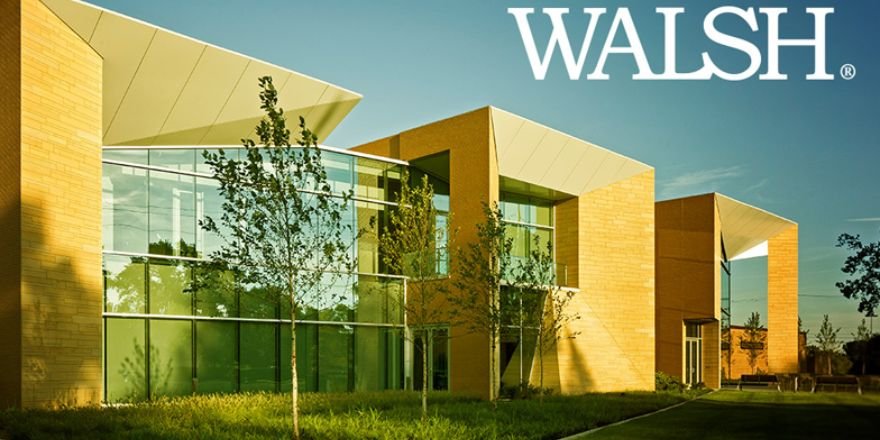Michigan is home to some of the best law schools in the US. These law schools offer a rigorous legal education and prepare students for a wide range of legal careers.
Whether you are interested in a career in corporate law, criminal law, or public interest law, choosing a law school is very critical to your future. However, with a vast array of options to select from, choosing the right law school in Michigan can be a bit brainstorming.
After thorough research, I have summed up the top 12 law schools in Michigan, based on several factors such as the school’s ranking, bar passage rate, employment outcomes, tuition and fees, and location.
This list was carefully selected, using a variety of sources, including the U.S. News & World Report law school rankings, the American Bar Association, and the National Center for Law Employment. I also considered factors such as the schools’ specializations, faculty, and student body.
So, whether you’re a parent looking for the right law school for your kid, or a student with passion for legal practices, this list of the best law schools in Michigan would guide you into making an informed decision that will in turn shape your future, and place you on the right track.
Related: Best Law Schools in Canada: Top 16
Table of Contents
Best Law Schools In Michigan
In no particular order, the best law schools in Michigan include the following;
1. University of Michigan Law School

Address:
- 625 S State St, Ann Arbor, Michigan 48109, United States
Bar passage rate:
- 95.5%
Tuition fees:
- Michigan residents: $69,584
- International students: $72,584
The University of Michigan Law School, known as Michigan Law, is one of the renowned law schools both in the state and on the national and global stage. Established in 1859, it has consistently upheld its reputation for academic excellence and producing exceptional legal professionals.
Michigan Law’s dedication to academic superiority is reflected in its distinguished faculty, rigorous curriculum, and forward-thinking research initiatives.
Offering a diverse array of courses and clinics, students can customize their studies to align with their specific interests, be it in environmental law, international human rights, or corporate law.
One standout feature of the University of Michigan Law School is its extensive and influential alumni network. Michigan Law graduates hold prominent positions in government offices, academia, top national law firms, and public interest law organizations. This network provides connections and opportunities, enriching students’ career prospects upon graduation.
Michigan Law also takes pride in its multidisciplinary approach to legal education. It encourages students to explore the intersections between law and other fields, including business, technology, and public policy.
2. Wayne State University School of Law
Address:
- 471 W Palmer Ave, Detroit, Michigan 48202, United States
Bar passage rate:
- 85.1%
Tuition fees:
- Michigan residents: $31,956
- International students: $39,839
The next school on our list of law schools in Michigan is the Wayne State University School of Law. Located in the heart of Detroit, Michigan, Wayne State University Law School plays a vital role in legal education.
Established in 1927, it is one of the oldest public law schools in Michigan, known for providing accessible legal education and producing exceptional lawyers who contribute significantly to the legal profession.
Wayne Law’s dedication to diversity and accessibility is evident in its inclusive admissions policies and efforts to enhance diversity within the legal field.
This law school further demonstrates this commitment through numerous scholarships and financial aid programs, making it an appealing choice for students from various backgrounds.
The city’s legal landscape offers abundant opportunities for hands-on learning, including internships, externships, and judicial clerkships in various legal settings. This practical, real-world training equips students with valuable legal experience and insights.
3. Michigan State University College of Law
Address:
- 648 N Shaw Ln, East Lansing, Michigan 48824, United States
Bar passage rate:
- 89%
Tuition fees:
- Michigan residents: $44,400
- International students: $54,900
The Michigan State University College of Law, popularly known as MSU Law, is one of the best public law schools in Michigan. The school is known for its diverse curriculum, its focus on practical experience, and its commitment to excellence.
MSU Law offers a wide range of specializations, including business law, criminal law, environmental law, intellectual property law, and public interest law. The school also has a number of clinical programs that allow students to gain practical legal experience while in law school.
Furthermore, MSU Law places significant emphasis on practical experience and hands-on training. Through its legal clinics, externships, and internship programs, students gain real-world exposure, applying their legal knowledge in practical settings. This hands-on learning equips MSU Law graduates with the skills and confidence essential for success in their legal careers.
4. University of Detroit Mercy School of Law

Address:
- 651 E Jefferson Ave, Detroit, MI 48226, United States
Bar passage rate:
- 84%
Tuition fees:
- $42,500 for all students
The University of Detroit Mercy School of Law is one of the renowned law schools in Michigan known for its long-standing commitment to legal education, social justice, and community engagement.
The law school was founded in 1912, and since then, it has placed a heavy focus on social justice and ethical ideals in legal education, encouraging students to use their legal skills to help neglected areas.
The law school helps students to acquire specialized legal skills by offering specialized programs in intellectual property law, family law, immigration services, and more.
Furthermore, Mercy Law’s deep commitment to public service, pro bono work, volunteer activities, and community clinics instills a sense of social responsibility, which is reinforced by exceptional clinical programs that provide students with significant exposure to numerous legal fields.
Related: 13 Best Military Schools In Michigan
5. Western Michigan University (Cooley Law School)
Address:
- 300 S Capitol Ave, Lansing, MI 48933, United States
Bar passage rate:
- 75.7%
Tuition fees:
- $41,600 for all students
Western Michigan University, often referred to as Cooley Law School, is by far one of the best law schools in Michigan. With its multiple campuses and a dedication to accessible legal education, Cooley Law School has earned respect as a choice for aspiring lawyers in Michigan.
Founded in 1972, Cooley Law School’s mission revolves around providing legal education to a diverse student body. Inclusive admissions policies, flexible scheduling, and a variety of campus locations make it an attractive option for law students with various life circumstances.
Cooley Law School’s commitment to community engagement encourages students to partake in pro bono work, volunteer initiatives, and outreach programs. This dedication fosters a sense of social responsibility and prepares law students to contribute meaningfully to society through the practice of law.
6. Michigan University of Technology Law School
Address:
- 625 South State Street, Ann Arbor, Michigan 48109-1215 USA
Bar passage rate:
- 89%
Tuition fees:
- Michigan residents: $44,500
- International students: $55,000
The Michigan University of Technology Law School, also known as MTLS, is a public law school located in Houghton, Michigan. The school is known for its focus on technology and intellectual property law, its commitment to diversity and inclusion, and it’s affordable tuition.
MTLS offers a variety of specializations, including business law, criminal law, environmental law, intellectual property law, and technology law. The school also has a number of clinical programs that allow students to gain practical legal experience while in law school.
MTLS graduates go on to successful careers in a wide range of legal fields. Many graduates work for law firms, while others work for government agencies, corporations, and non-profit organizations.
7. Walsh College of Law at Campbell University

Address:
- 225 Hillsborough St, Raleigh, NC 27603, United States
Bar passage rate:
- 98.1%
Tuition fees:
- $51,000 for all students
Walsh College of Law at Campbell University stands as a champion of legal education that upholds the highest standards of critical thinking, effective writing, and persuasive speaking.
Its students consistently demonstrate the ability to make sound judgments, uphold ethical values, and maintain the utmost levels of professional excellence. The challenging three-year Juris Doctor program comprises a core curriculum and a total of 90 credit hours for graduation.
The educational framework at Walsh College of Law reflects a commitment to delivering a genuinely professional legal education, blending theoretical exploration with the development of practical skills. This approach empowers students to analyze legal principles, construct and evaluate legal arguments, and effectively resolve legal issues.
Throughout their academic journey, students gain comprehensive expertise in areas such as planning, counseling, negotiation, legal drafting, trial and appellate advocacy, and alternative dispute resolution methods.
Small class sizes and dedicated faculty mentors enhance the learning experience, ensuring graduates enter the workforce well-prepared for a successful legal career.
Related: Best Dental Schools In Georgia
8. Oakland University William Beaumont School of Law
Address:
- Varner Hall, Room 418, 371 Varner Drive, Rochester, Michigan, US
Bar passage rate:
- 95.5%
Tuition fees:
- Michigan residents: $36,503
- International students: $39,839
The Oakland University William Beaumont School of Law 3+3 program is a unique opportunity for students to earn both an undergraduate degree and a law degree in as little as six years. This program is open to students majoring in political science, international relations, or public administration and public policy at Oakland University.
Students in this program can complete their undergraduate degree at Oakland University while simultaneously commencing law studies at Wayne State University Law School. After three years, students transfer to Wayne State University Law School, where 30 law school credits count towards their undergraduate degree.
This program has a number of advantages, including:
- Accelerated path to a law degree: Students in the 3+3 program can earn both an undergraduate degree and a law degree in as little as six years, one year faster than it would take to complete the two degrees separately.
- Reduced costs: The tuition for the 3+3 program is less than the tuition for the two degrees separately.
- Waived requirements: Students in the 3+3 program are waived from the College of Arts and Sciences exploratory requirement.
- Strong partnership: The Oakland University William Beaumont School of Law 3+3 program is a partnership between two highly respected universities, Oakland University and Wayne State University.
9. Concordia University School of Law
Address:
- 501 W Front St, Boise, ID 83702, United States
Bar passage rate:
- 76%
Tuition fees:
- Michigan residents: $18,400
- International students: $28,400
Concordia University School of Law offers a unique interdisciplinary minor program that explores the impact of law on society from a holistic perspective. The program encourages students to view law as a vital discourse that shapes social, economic, and political dynamics, beyond simply a set of rules.
Through the lenses of sociology, history, anthropology, political science, philosophy, and more, students delve into various facets of law, including governance, crime, conflict, and social justice, gaining a comprehensive understanding of its multifaceted role in Michigan, and the global context.
The Jurist-in-Residence program further enriches the learning experience, providing mentorship opportunities and insights from practicing jurists. Students also have the chance to visit courtrooms and receive invaluable guidance on potential legal career paths.
Concordia University School of Law equips students with a profound understanding of the law’s impact on society and offers unique opportunities to engage with legal professionals and gain real-world insights into the legal profession.
10. Lawrence Technological University School of Law

Address:
- 21000 W 10 Mile Rd, Southfield, MI 48075, United States
Bar passage rate:
- 89%
Tuition fees:
- Michigan residents: $44,500
- International students: $55,000
The last institution on our list of law schools in Michigan is the Lawrence Technological University’s School of Law (LTU Law). LTU Law is a private law school located in Southfield, Michigan. The school is known for its focus on practical legal training, its commitment to diversity and inclusion, and its affordable tuition.
LTU Law offers a three-year Juris Doctor program that covers all of the essential areas of law. The school also offers a number of specializations, including business law, criminal law, environmental law, intellectual property law, and public interest law.
LTU Law graduates go on to successful careers in a wide range of legal fields. Many graduates work for law firms, while others work for government agencies, corporations, and non-profit organizations.
Here are some additional details about the Lawrence Technological University School of Law:
- Faculty: LTU Law has a faculty of over 30 full-time professors and clinical instructors. Many of the faculty are nationally recognized experts in their fields.
- Student body: LTU Law has a student body of over 400 students. The student body comes from all over the United States and the world.
- Alumni network: LTU Law has a strong alumni network of over 5,000 graduates. The alumni network provides valuable connections and opportunities for students and graduates.
FAQs
What GPA do you need to get into law schools in Michigan
To qualify into any of the law schools in Michigan, you need a median GPA of 3.84 and accepted GPAs in the range of 3.61-3.93.
How long is law school in Michigan?
The average law school in Michigan offers a 3 year JD (Juris Doctor) program. However, to get a degree in Law, you would be spending up to 6 years in the law school.
What is the easiest law school to get into in Michigan?
Western Michigan University’s Cooley Law School frequently appears in discussions concerning law schools known for their accessibility. The school boasts an exceptional acceptance rate of 86 percent, though it’s important to note that its bar pass rate is comparatively lower, standing at just 43 percent.
What GPA do I need for Michigan law?
The median GPA you need for Michigan law school is 3.85 with the 25th and 75th percentiles at 3.34 and 3.92.
How much does law school cost in Michigan?
The average law school in Michigan costs about $15,000 – $20,000 for Michigan residents, and about $30,000 – $60,000 for international students.
What is the cheapest law school in Michigan?
The cheapest among the law schools in Michigan is Wayne State University Law School. The school has the lowest annual tuition of $31,956 for Michigan residents, and $39,839 for international students.
How much does it cost to take the bar exam in Michigan?
To take a bar exam in Michigan, you need to pay a fee of $400.
Conclusion
There are several law schools in Michigan, each with its own unique strengths and focus. From public schools like the University of Michigan School of Law and Michigan State University College of Law to private schools like Western Michigan University Cooley Law School and Lawrence Technological University School of Law, students have a wide range of options to choose from.
When choosing a law school, it is important to consider your individual needs and goals. What type of law do you want to practice? What kind of learning environment do you thrive in? How much can you afford to pay? Once you have considered these factors, you can begin to narrow down your choices.
If you are interested in attending law school in Michigan, I encourage you to research all of the schools that the state has to offer. Visit the schools, talk to current students and faculty, and attend admissions events. The more you know about each school, the better equipped you will be to make a decision that is right for you.

